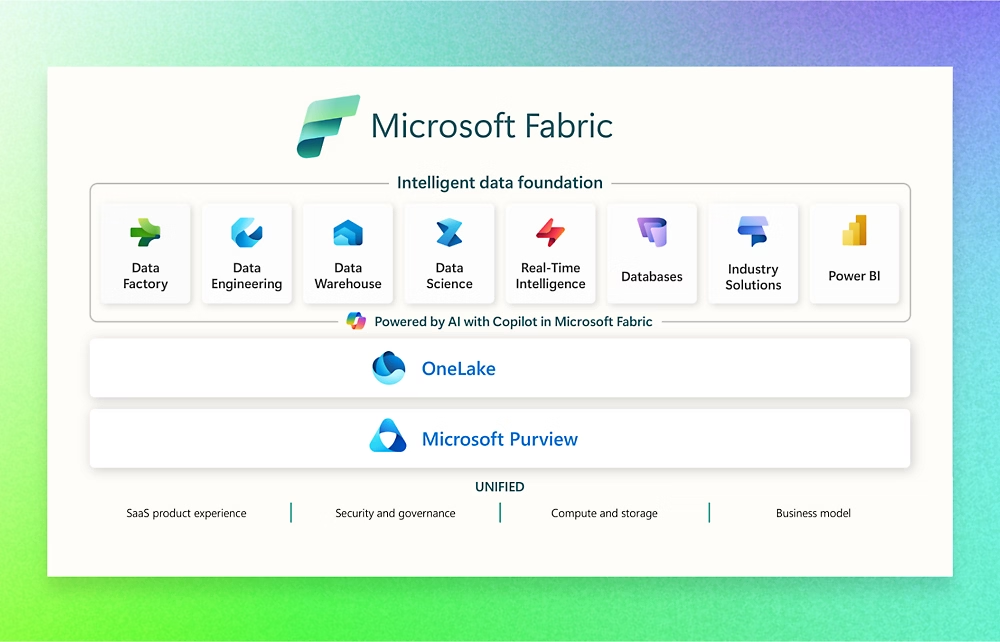Harnessing Citizen Data Scientists for Analytics Innovation

The ability to harness the power of analytics is no longer restricted to data scientists and IT professionals. With the emergence of citizen data scientists, analytics is being democratized, allowing anyone with the desire and right tools to become a data rockstar. Enter a new era of analytics where individuals across various departments and industries can contribute their unique insights to drive better business outcomes.
This article explores the concept of citizen data scientists and how they are revolutionizing the analytics landscape. It delves into the benefits they bring, the challenges they face, and the tools and technologies that empower them to leverage the full potential of their analytical skills. From predictive modeling to data visualization, citizen data scientists are unlocking valuable insights that were previously reserved for a select few.
The power of citizen data scientists is increasing, and organizations are leveraging this new breed of analysts to drive innovation, make informed decisions, and achieve a competitive edge in the ever-evolving data-driven world.

Understanding citizen data scientists
Citizen data scientists are individuals within an organization who may not necessarily have a formal background in data science or analytics but possess the curiosity, domain knowledge, and analytical skills to derive insights from data. They bridge the gap between business users and data scientists, enabling organizations to make data-driven decisions at a faster pace.
Unlike traditional data scientists who typically require advanced programming skills and expertise in statistical modeling, citizen data scientists leverage user-friendly tools and technologies to analyze data and generate meaningful insights. They are empowered to explore data, discover patterns, and create visualizations without relying heavily on technical expertise.
Citizen data scientists can come from a variety of backgrounds, including marketing, finance, operations, and sales. They understand the nuances of their respective fields and possess the contextual knowledge necessary to derive actionable insights from data. By combining their domain expertise with analytical skills, citizen data scientists play a crucial role in driving innovation and improving business outcomes.

The role of citizen data scientists in analytics
The role of citizen data scientists goes beyond simply analyzing data. They act as catalysts for change within organizations, driving a data-driven culture and encouraging others to embrace analytics. Citizen data scientists collaborate with business users, data scientists, and IT professionals to identify business problems, develop hypotheses, and design experiments to test their theories.
Citizen data scientists also play a vital role in data preparation and cleansing. They understand the importance of data quality and work towards ensuring that the data they analyze is accurate and reliable. By cleaning and transforming data, they create a solid foundation for analysis and ensure that the insights generated are trustworthy.
Additionally, citizen data scientists are responsible for interpreting and communicating the insights derived from data. They use data visualization techniques to present complex information in a clear and concise manner, making it easier for stakeholders to understand and act upon the insights. By effectively communicating the value of data-driven decision-making, citizen data scientists drive adoption and promote the use of analytics throughout the organization.
Benefits of citizen data scientists
The rise of citizen data scientists brings several benefits to organizations of all sizes and industries. Here are some key advantages:
- Faster insights and decision-making: Citizen data scientists can rapidly analyze data and generate insights without relying on the bottleneck of traditional data science teams. This enables organizations to make informed decisions in a timely manner, giving them a competitive edge in the market.
- Domain expertise: Citizen data scientists bring their domain knowledge to the table, allowing them to contextualize the data and derive insights that are specific to their industry or department. This leads to more relevant and actionable insights that drive business growth.
- Cost-effective analytics: Hiring and maintaining a team of data scientists can be expensive. By leveraging citizen data scientists, organizations can distribute the analytical workload and reduce the need for specialized data science resources, resulting in cost savings.
- Promotes data-driven culture: Citizen data scientists act as ambassadors for analytics within the organization. By showcasing the power of data-driven decision-making, they inspire others to embrace analytics and foster a culture that values data-driven insights.
- Increased collaboration: Citizen data scientists bridge the gap between business users and data scientists, facilitating collaboration and knowledge sharing. They work closely with different departments, encouraging cross-functional teams to come together and solve complex business problems.
- Empowers employees: By empowering employees to become citizen data scientists, organizations tap into the untapped potential of their workforce. This not only improves job satisfaction but also enables individuals to contribute their unique perspectives and insights to drive innovation.
Challenges faced by citizen data scientists
While citizen data scientists bring numerous benefits to organizations, they also face certain challenges in their journey towards becoming data rockstars. Some common challenges include:
- Lack of training and resources: Many citizen data scientists lack formal training in data science or analytics. They may not be aware of the best practices or have access to the right resources to enhance their skills. Organizations need to invest in training programs and provide adequate resources to support their development.
- Data access and quality: Access to relevant and reliable data is crucial for citizen data scientists to derive meaningful insights. However, they often face challenges in accessing the data they need or encounter data quality issues that hinder their analysis. Organizations should ensure that data is readily available and of high quality.
- Data privacy and security: Citizen data scientists may handle sensitive or confidential data during their analysis. Organizations must establish proper data governance policies and provide clear guidelines on data privacy and security to protect both the organization and the individual.
- Resistance to change: Not everyone within an organization may be open to embracing analytics or the role of citizen data scientists. Resistance to change and skepticism towards data-driven decision-making can hinder the adoption of citizen data science initiatives. Organizations need to address these concerns and communicate the value of analytics effectively.
- Technical limitations: Citizen data scientists rely on user-friendly tools and technologies to analyze data. However, these tools may have limitations in terms of scalability or advanced functionality. Organizations should ensure that citizen data scientists have access to the right tools that meet their analytical needs.
How AnalyticsCreator Unleashes the Power of Citizen Data Scientists
Citizen data scientists hold immense potential to revolutionize analytics within organizations. However, the technical complexities of data analysis tools can often hinder their ability to harness this power. AnalyticsCreator steps in to bridge this gap. By automating complex tasks like data warehousing and ETL processes, and providing a user-friendly interface, AnalyticsCreator empowers citizen data scientists to focus on what matters most: understanding the data and generating valuable insights. Features like the cognitive intelligent engine and a holistic data model view further enhance their efficiency, while functionalities like automatic documentation and error handling ensure a smooth workflow. With access to a wide range of data sources and data storage options, citizen data scientists can leverage AnalyticsCreator to unlock the power of data from virtually any corner of the organization. In short, AnalyticsCreator empowers citizen data scientists to become active participants in the data analysis revolution.
- Reduced Complexity: Automates data warehousing, ETL processes, and model creation, minimizing reliance on coding expertise.
- User-Friendly Interface: Utilizes a familiar Windows GUI for a smooth learning curve.
- Cognitive Intelligent Engine: Saves time with customizable templates for data models and ETL workflows.
- Improved Efficiency: Generates automatic documentation and offers error handling/rollback for a streamlined workflow.
- Data Flexibility: Connects to a vast array of data sources and offers multiple data storage options.
Citizen Data Science vs. Traditional Data Science
Data science has traditionally been the realm of highly trained professionals with advanced degrees in fields such as statistics, mathematics, and computer science. These experts possess the technical skills and domain knowledge required to extract actionable insights from complex datasets. However, the demand for data-driven decision-making has outpaced the supply of skilled data scientists, leading to a shortage of talent in the market.
Citizen data science fills this gap by enabling individuals without formal data science training to contribute to the analytics process. Citizen data scientists are typically business analysts, domain experts, or even non-technical employees who have a deep understanding of their organization's data and business objectives. They are equipped with user-friendly tools and technologies that allow them to perform tasks such as data exploration, visualization, and predictive modeling without extensive coding or statistical knowledge.
By empowering non-experts to participate in the analytics process, organizations can tap into a wider pool of talent, unlock new perspectives, and accelerate the pace of innovation. Citizen data scientists bring a fresh set of eyes to the data, often asking different questions and uncovering novel insights that may have been overlooked by traditional data scientists. This democratization of analytics leads to a more inclusive and collaborative approach to decision-making, where insights are derived from diverse sources within the organization.
However, it is important to note that citizen data scientists do not replace the need for traditional data scientists. Instead, they complement each other's skills and work together to maximize the value of data. While citizen data scientists excel in domain expertise and contextual understanding, traditional data scientists bring advanced statistical knowledge, algorithmic expertise, and a deep understanding of machine learning techniques. The collaboration between these two groups creates a powerful synergy that drives innovation and unlocks the full potential of data.
AnalyticsCreator is a game-changer for the burgeoning field of citizen data science. By simplifying complex data processes and offering an intuitive interface, it empowers individuals across various domains to engage with data analytics effectively. This democratization of data science not only accelerates decision-making and fosters a data-driven culture but also unlocks the potential within each employee to contribute meaningfully to their organization's success. As we embrace this new era of analytics, AnalyticsCreator stands out as an essential tool for any organization looking to harness the full power of its data through the hands of its citizen data scientists.





